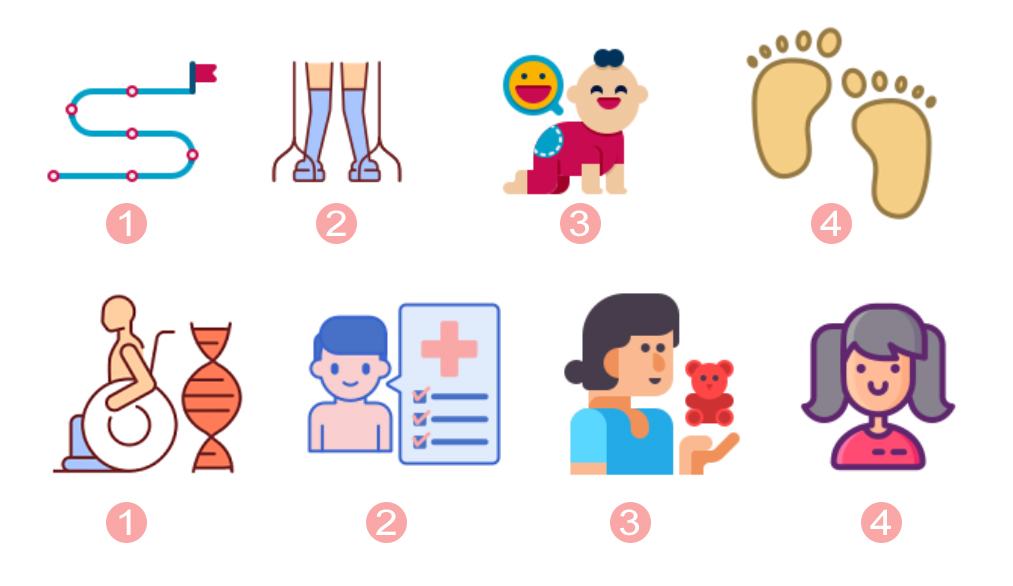
- Delayed Miles Stone Physiotherapy
- Cerebral palsy physiotherapycv
- Pediatric late walking
- Physiotherapy for flat foot
- Muscular dystrophy physiotherapy
- Developmental disorders
- Pediatric Neuro physiotherapy
- Pediatric Musculoskeletal
WHAT IS PEDIATRIC PHYSIOTHERAPY?
Pediatric physiotherapy is effective in the management of perinatal conditions, conditions diagnosed in early childhood, and injuries sustained throughout childhood and the transition to adult care. Pediatric physiotherapy improves physical function and quality of life. Its long-term benefits are significant and include reducing disability and the need for surgery or other more costly invasive interventions resulting in a decreased burden on the future use of health care services.
Pediatric physiotherapists assess, diagnose and treat neurological, developmental, cardiorespiratory, and orthopedic conditions in children up to 18 years of age, with a focus on improving function and increasing independence. Physiotherapy has a positive and significant impact on pulmonary function, motor control, muscle strength, and physical endurance in pediatric patients with chronic conditions such as cerebral palsy, cystic fibrosis, and juvenile idiopathic arthritis.
HOW DOES IT WORK?
Pediatric physiotherapists help children to achieve optimal physical development. They have specialist knowledge in the movement, development, and conditions that are likely to affect the baby and growing child and treat from 1-day-old babies to adolescents. Treatment may involve soft tissue massage, mobilization, stretching, specific therapeutic exercises, and posture education. Because Children are not small adults these therapists encourage children to move to the best of their abilities through play and age-appropriate fun and instruction. The physiotherapist will inevitably work within the context of the child and his family and have the opportunity to work with the child in a range of situations extending into the home, preschool groups, education, and leisure activities.
Because of the complex needs of the child and the family, the physiotherapist may work with many other disciplines including medicine, nursing, social work, educational and care staff, psychological and psychiatric teams as well as speech and occupational therapists. The physiotherapist working in such teams must be able to communicate his/her observations, assessments, and treatment plans to the child, his parents, and other members of the team. To work effectively and efficiently the pediatric physiotherapist must in addition to his physiotherapy skills, have a clear understanding of the development process of childhood, primitive reflex patterns, and pediatric illness and disability.
Some Benefits of Pediatric Physiotherapy
- Improves Muscle Tone of Child
- Improves Range of Motion of Child
- Improves Muscle Strength of Child
- Improves Posture of Child
- Improved Gait/Gait Training
- Integrates Reflexes of Child
- Improves Gross Motor Skills of Child
- Improves Functional Mobility of Child
- Improves Balance and Coordination
- Addresses Respiratory Difficulties
- Assists in Learning Difficulties

